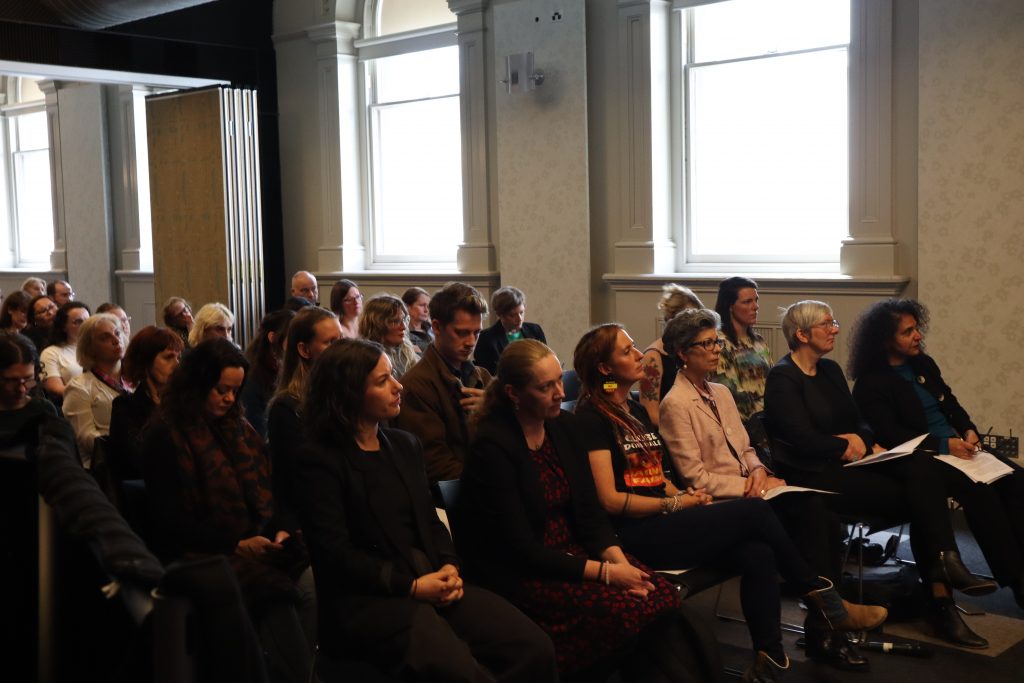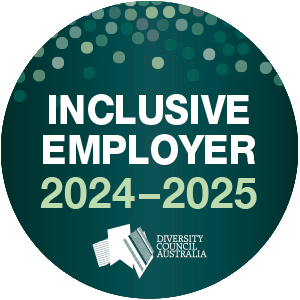17 November 2022
In the lead up to the Victorian Election, No to Violence partnered with Victorian peak bodies Safe and Equal and Sexual Assault Services Victoria on the “Vote Against Violence in 2022” Election Tour.
Candidates from Labor, the Coalition and the Greens met with the three peak bodies, frontline service providers and survivor advocates to share how their parties are going to address Victoria’s staggering rates of family and sexual violence.
According to the Crime Statistics Agency, the number of family violence incidents across Victoria is increasing each year. Reported incidents of family violence have risen sharply during the COVID-19 pandemic, with a 5.6% increase in 2021. The number of sexual offence victim reports increased by 8.6% for females and decreased by 6.6% for males in 2021. We know however, that incidents of sexual violence are still significantly underreported with police or other agencies.
Gendered violence is one of the most pressing social issues affecting Victorians and has been at the forefront of public consciousness since the 2016 Royal Commission into Family Violence.
To date, in this campaign, neither Labor nor the Liberals have made any election commitments around preventing and responding to family violence or sexual assault.
The Tour
The election tour involved a series of roundtable events across the state with candidates, and our collective member organisations to discuss the key issues and priorities for services in their regions.
Between October and November, we travelled more than 1,800km to meet with candidates and members in Morwell, Hastings, Melton, Hawthorn, Ballarat and Wangaratta in their local districts. We met with a total of 24 candidates and 37 service providers, representing 25 organisations across the state.
Jacqui joined Tania Farha (CEO, Safe and Equal) and Kathleen Maltzahn (CEO, Sexual Assault Services Victoria) to facilitate discussions between our member services and local candidates. Our discussions focused on four key issues that must be addressed to eliminate family and sexual violence in Victoria: workforce, demand, housing, and justice and legal outcomes.

Workforce
Our members spoke about the impact of short-term funding cycles and how this affects their ability to offer job security, recruit new staff, plan for the future, and build relationships with communities. We heard about the knock-on effect this has had on existing staff who are covering demanding workloads, and whose wellbeing has already suffered throughout the pandemic. Because of this, many staff have chosen to leave the workforce and seek alternative employment – leaving services with the added pressure of needing to rebuild their teams with new staff.
Members are concerned that the number of new graduates joining the workforce will not be sufficient to meet the growing demand for services. Service providers spoke about the impact of Recommendation 209 from the Royal Commission into Family Violence, and how the minimum requirement for staff to hold a Bachelor of Social Work has inadvertently created another barrier for new staff entering the workforce.
Demand
The pressure on the workforce has been compounded by the increase in demand. The Royal Commission into Family Violence was transformative, and more people can now make the brave decision to ask for help, but specialist services are under immense pressure. We heard from services across the state about the increasing complexity of cases, and in some cases the increase in severity of violence, and the extra time, energy and resources it takes to respond to this complexity. We also heard about the need to support children who are impacted by family violence as victims in their own right and their unique needs to recover.
Short-term funding cycles are also contributing to issues of demand because it means that services are continually having to shift their focus away from service delivery to secure funding for the next 12 months. Our members spoke about how short-term contracts are affecting their ability to offer comprehensive services:
“On average, we work with fathers for between 4-6 months. What do we do when we can’t guarantee that our service will still be funded in 3 months’ time? Is it ethical for us to take on new clients, knowing we may not be able to provide them with a full service?”
Housing
At every event we held across the state, members were concerned and shared disturbing stories about the housing crisis. We heard how the public housing backlog and the bottlenecks created throughout the system because people can’t move on from refuges has resulted in 150 families in crisis hotels across the state each night.
We also heard about the difficulties in safely housing women and children in small communities, and children forced to stay in unsafe accommodation. Members also shared how frequently people were making the choice between risking homelessness or remaining in an unsafe household.
We further heard how the lack of affordable housing and rising rents is impacting on recruitment. Many rural areas told us that they often try to recruit from metropolitan areas because the skills shortage is so severe in their region. However, it is hard to recruit from outside their region because of the lack of housing stock available; staff can’t find a vacant place to live.
Justice and Legal Outcomes
Our members spoke about how deeply ingrained misconceptions and attitudes towards gendered violence still are in our society.
Sexual Assault Services Victoria told candidates about the need for more training for staff in the legal and justice system to understand the complexity of these cases. They also spoke about the need for an independent advocate to support victim survivors to navigate the justice system.
Similarly, we heard from community legal centers that they cannot meet the demand and they haven’t received funding to support victim survivors to navigate the new family court systems.
Read the tour report here.








